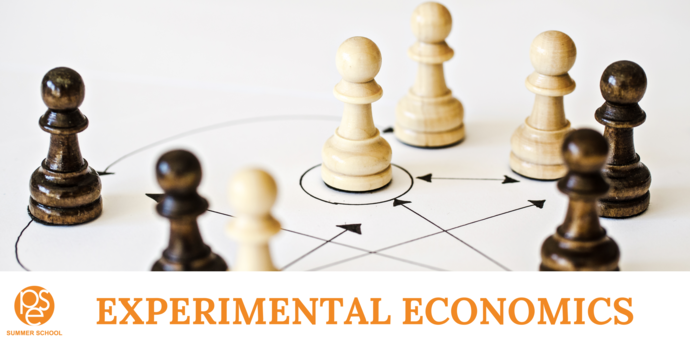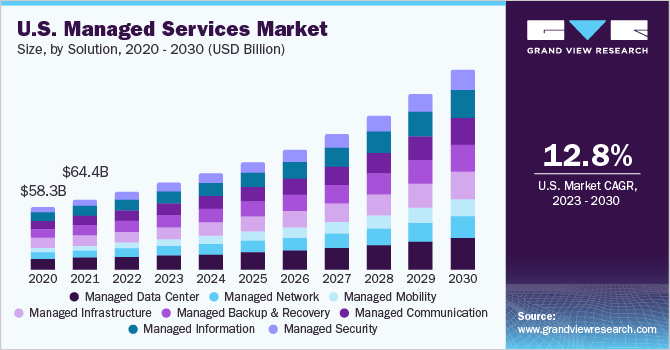Table of Contents
In the ever-evolving world of marketing, understanding consumer behavior is the key to success. To gain deeper insights into consumer preferences, motivations, and decision-making processes, marketers are increasingly turning to experimental economics. This approach allows them to conduct controlled studies that mimic real-world scenarios, providing invaluable data for informed marketing strategies. In this article, we explore the role of experimental economics in marketing and how controlled studies contribute to a deeper understanding of consumer behavior.
“In the ever-evolving world of marketing, understanding consumer behavior is the key to success. To gain deeper insights into consumer preferences, motivations, and decision-making processes, marketers are increasingly turning to experimental economics. This approach allows them to conduct controlled studies that mimic real-world scenarios, providing invaluable data for informed marketing strategies.
Experimental economics offers a laboratory-like environment for marketers, where they can craft scenarios and observe how consumers respond to various stimuli. These experiments range from A/B testing in digital advertising to in-store product placement trials. By manipulating variables and closely monitoring consumer reactions, marketers can uncover patterns and drivers that might otherwise remain hidden.
One significant advantage of experimental economics in marketing is the ability to test hypotheses rigorously. Marketers can pose questions like, ‘How does changing the color of a call-to-action button affect conversion rates?’ or ‘What pricing strategy elicits a stronger purchase intent?’ Controlled experiments allow for precise measurement and comparison of outcomes, providing empirical evidence to guide decision-making.
Furthermore, these experiments enable marketers to fine-tune their strategies based on real data. Instead of relying solely on intuition or historical trends, they can make data-driven decisions. This approach not only minimizes risks but also maximizes the efficiency of marketing campaigns, ensuring that resources are allocated where they are most likely to yield positive results.
Experimental economics also allows marketers to gain a more holistic understanding of consumer behavior. It goes beyond surface-level observations to explore the underlying cognitive processes and emotions that influence choices. By dissecting the ‘why’ behind consumer decisions, marketers can craft more compelling and resonant messages, products, and experiences.
As we delve deeper into the role of experimental economics in marketing, we unveil the power of controlled studies in deciphering the intricacies of consumer behavior. In a world where consumer preferences are ever-evolving, this approach empowers marketers to adapt and thrive in the dynamic marketplace, creating strategies that resonate with the hearts and minds of their target audience.”
Should you desire more in-depth information, it’s available for your perusal on this page: Understanding and misunderstanding randomized controlled trials …
The Foundations of Experimental Economics
Experimental economics is a branch of economics that utilizes controlled experiments to study human behavior in economic decision-making. While it originally originated in academic research, its applications have expanded into various fields, including marketing.
nullFor a comprehensive look at this subject, we invite you to read more on this dedicated page: Economics < University of Chicago Catalog

Controlled Environments
Experiments are conducted in controlled environments where researchers can manipulate specific variables while keeping other factors constant. This controlled setting allows for a clear understanding of causality.
Experiments are conducted in controlled environments where researchers can manipulate specific variables while keeping other factors constant. This controlled setting allows for a clear understanding of causality.
In these controlled experiments, researchers carefully design and structure their investigations to isolate the effects of the variable they are interested in studying. By manipulating this variable and holding all other factors steady, they can discern whether changes in the variable lead to corresponding changes in the outcome. This rigorous approach is the bedrock of scientific inquiry, enabling researchers to establish cause-and-effect relationships with a high degree of confidence.
Controlled experiments are not limited to any particular field; they are the cornerstone of scientific progress across various disciplines. In the natural sciences, researchers might conduct experiments in laboratories to explore the fundamental laws of physics, chemistry, or biology. In social sciences like psychology and economics, controlled experiments help uncover the intricate workings of the human mind and behavior.
Furthermore, the insights gained from controlled experiments extend beyond the realm of pure research. They have practical applications in fields such as medicine, technology, and product design. For example, clinical trials are a form of controlled experiments that evaluate the effectiveness of new drugs or medical treatments. Engineers use controlled experiments to refine product designs and improve functionality, while marketers employ them to test the impact of different advertising strategies.
In the era of big data and complex systems, controlled experiments remain a valuable tool for uncovering fundamental truths and driving innovation. They provide a structured framework for inquiry, allowing us to decipher the mysteries of the universe, enhance our understanding of human behavior, and develop solutions to some of the most pressing challenges of our time. In essence, controlled experiments are the guiding light that illuminates the path of discovery, empowering us to push the boundaries of knowledge and make meaningful advancements in our world.
Don’t stop here; you can continue your exploration by following this link for more details: Finance & Development, March 2003 – The Lab Man: How …

Randomization
Participants are often assigned to different treatment groups randomly, ensuring that the results are not biased by factors like participant characteristics.
Random assignment to treatment groups is a cornerstone of experimental research design, serving as a powerful tool to minimize the influence of confounding variables and bolster the credibility of research findings. This method not only guards against the distortion of results due to participant characteristics but also has several broader implications and advantages that enrich the scientific process.
Enhanced Causality: Random assignment strengthens the ability to establish causality. By distributing participants randomly into groups, researchers can confidently attribute any observed differences in outcomes to the treatment or intervention being studied rather than extraneous variables. This causal inference is fundamental in fields ranging from medicine to social sciences.
Generalizability: Random assignment contributes to the external validity of a study. When participants are assigned randomly, the resulting sample is more likely to represent the broader population from which it was drawn. This increases the generalizability of findings, allowing researchers to make more meaningful and applicable conclusions beyond the study sample.
Ethical Considerations: Random assignment can have ethical benefits. It ensures fairness in treatment allocation, reducing the likelihood of unintentional discrimination or bias. This is particularly important in research involving vulnerable populations, where equitable treatment allocation is paramount.
Statistical Rigor: Randomization enhances the statistical rigor of experiments. It enables the use of powerful statistical tests that assume random sampling, such as parametric tests like t-tests and ANOVA. These tests, in turn, yield more accurate and robust results.
Control Over Confounding Variables: Random assignment controls for both known and unknown confounding variables. While researchers can identify and account for known confounders, randomization also helps mitigate the influence of unmeasured or unexpected variables that might otherwise distort the results.
Longitudinal Studies: Random assignment can be extended to longitudinal studies. By assigning participants to different conditions at multiple time points, researchers can investigate how interventions and treatments impact outcomes over extended periods, providing insights into long-term effects.
Innovation and Discovery: The unbiased nature of random assignment encourages innovation and discovery. Researchers can explore novel treatments, interventions, or hypotheses with confidence, knowing that their findings are less likely to be tainted by bias or preconceived notions.
Replicability and Meta-analysis: Randomized studies are more amenable to replication and meta-analysis. When findings are consistent across multiple randomized trials, it bolsters the overall body of evidence and strengthens the confidence in the validity of the results.
In summary, random assignment transcends its role as a simple methodological technique; it is a cornerstone of rigorous scientific inquiry. By minimizing bias and enhancing the validity and generalizability of research findings, it contributes to the advancement of knowledge across diverse fields, ultimately improving our understanding of the world.
For additional details, consider exploring the related content available here Understanding and misunderstanding randomized controlled trials …

Repetition
Experiments are typically repeated with different participants to validate findings and ensure their robustness.
In the realm of scientific research and experimentation, the process of repeating experiments with different participants plays a pivotal role in upholding the integrity and credibility of findings. This fundamental practice transcends the boundaries of disciplines and is vital for several compelling reasons.
Firstly, by conducting experiments with a diverse pool of participants, researchers aim to establish the generalizability of their findings. Human behavior and responses can vary significantly based on factors such as age, gender, cultural background, and individual characteristics. Repeating experiments with different participants allows researchers to assess whether their conclusions hold true across a broader spectrum of the population, reinforcing the reliability and validity of their results.
Moreover, the repetition of experiments helps in identifying potential outliers or anomalies. Occasionally, a single participant’s responses can significantly deviate from the norm due to various factors, including personal idiosyncrasies or measurement errors. By involving multiple participants, researchers can identify and mitigate the impact of these outliers, ensuring that their findings accurately represent the phenomenon under investigation.
Another crucial aspect is the enhancement of experimental rigor and control. Repeating experiments with different participants allows researchers to examine the consistency of their results and identify any confounding variables that may affect the outcomes. This iterative process enables them to refine their experimental designs, minimize bias, and enhance the robustness of their conclusions.
Furthermore, the practice of repeating experiments contributes to the accumulation of scientific knowledge over time. Independent replication by different researchers and laboratories serves as a critical validation mechanism for scientific claims. When findings can be consistently reproduced across different settings and by various investigators, the scientific community gains greater confidence in the established principles and theories.
In the era of data-driven research and evidence-based decision-making, the replication of experiments is not only encouraged but often demanded to ensure the transparency and reproducibility of scientific results. It fosters accountability and trust in the scientific process, allowing society to make informed decisions based on well-substantiated findings.
In summary, the repetition of experiments with different participants is an essential cornerstone of the scientific method. It safeguards the validity of research findings, enhances experimental control, supports generalizability, and contributes to the cumulative body of scientific knowledge. As science continues to advance, this practice remains indispensable for maintaining the highest standards of research integrity and reliability.
Explore this link for a more extensive examination of the topic: How to SHIFT Consumer Behaviors to be More Sustainable: A …

The Application of Experimental Economics in Marketing
In marketing, experimental economics is applied to gain insights into consumer behavior. These insights help businesses make data-driven decisions, refine marketing strategies, and enhance their understanding of how consumers respond to various stimuli.
Here are some key areas where experimental economics is making a significant impact in marketing:
nullShould you desire more in-depth information, it’s available for your perusal on this page: What Is Behavioral Economics? Theories, Goals, and Applications

Leveraging Controlled Studies for Marketing Success
Experimental economics in marketing is not just a theoretical concept; it’s a practical approach that empowers businesses to make informed decisions based on real-world data. By conducting controlled studies, businesses can gain a deeper understanding of consumer behavior, refine their marketing strategies, and ultimately enhance their competitiveness in the ever-challenging marketplace. As technology and data analytics continue to advance, the role of experimental economics in shaping marketing strategies is likely to become even more prominent.
Experimental economics in marketing is the bridge that connects theory with actionable insights in the fast-paced world of business. It’s not an abstract concept; it’s a tangible method that equips businesses with the tools to make data-driven decisions, elevating their marketing efforts to new heights of effectiveness.
The beauty of experimental economics lies in its practicality. It’s not about theorizing how consumers might react to a marketing campaign; it’s about observing their actual behavior in controlled settings. Businesses can design experiments to test various marketing strategies, product features, pricing models, and even packaging designs. This empirical approach provides invaluable insights into what truly resonates with consumers.
These experiments allow companies to refine their marketing strategies, optimizing their campaigns for maximum impact. They can fine-tune messaging, target specific customer segments more effectively, and adjust pricing strategies based on real-world data rather than guesswork. This data-driven decision-making isn’t just a theoretical exercise; it directly impacts the bottom line.
In a marketplace defined by cutthroat competition, staying ahead of the curve is paramount. Experimental economics grants businesses a competitive edge by enabling them to adapt and innovate rapidly. By continuously testing and iterating marketing strategies, companies can respond swiftly to changing consumer preferences and market dynamics.
As technology and data analytics continue to advance, the role of experimental economics in shaping marketing strategies will undoubtedly expand. The wealth of data available today, coupled with sophisticated analytical tools, empowers businesses to conduct more intricate experiments and extract deeper insights. This evolution promises to make experimental economics an even more prominent and indispensable component of modern marketing.
In a world where consumer behavior is constantly evolving, businesses that embrace experimental economics are better positioned to not just survive but thrive. They are the ones who understand that successful marketing is not about guesswork but about harnessing the power of empirical evidence to drive decisions and enhance competitiveness in the ever-challenging marketplace.
If you’d like to dive deeper into this subject, there’s more to discover on this page: Setting the future of digital and social media marketing research …
More links
For additional details, consider exploring the related content available here Finance & Development, March 2003 – The Lab Man: How …
